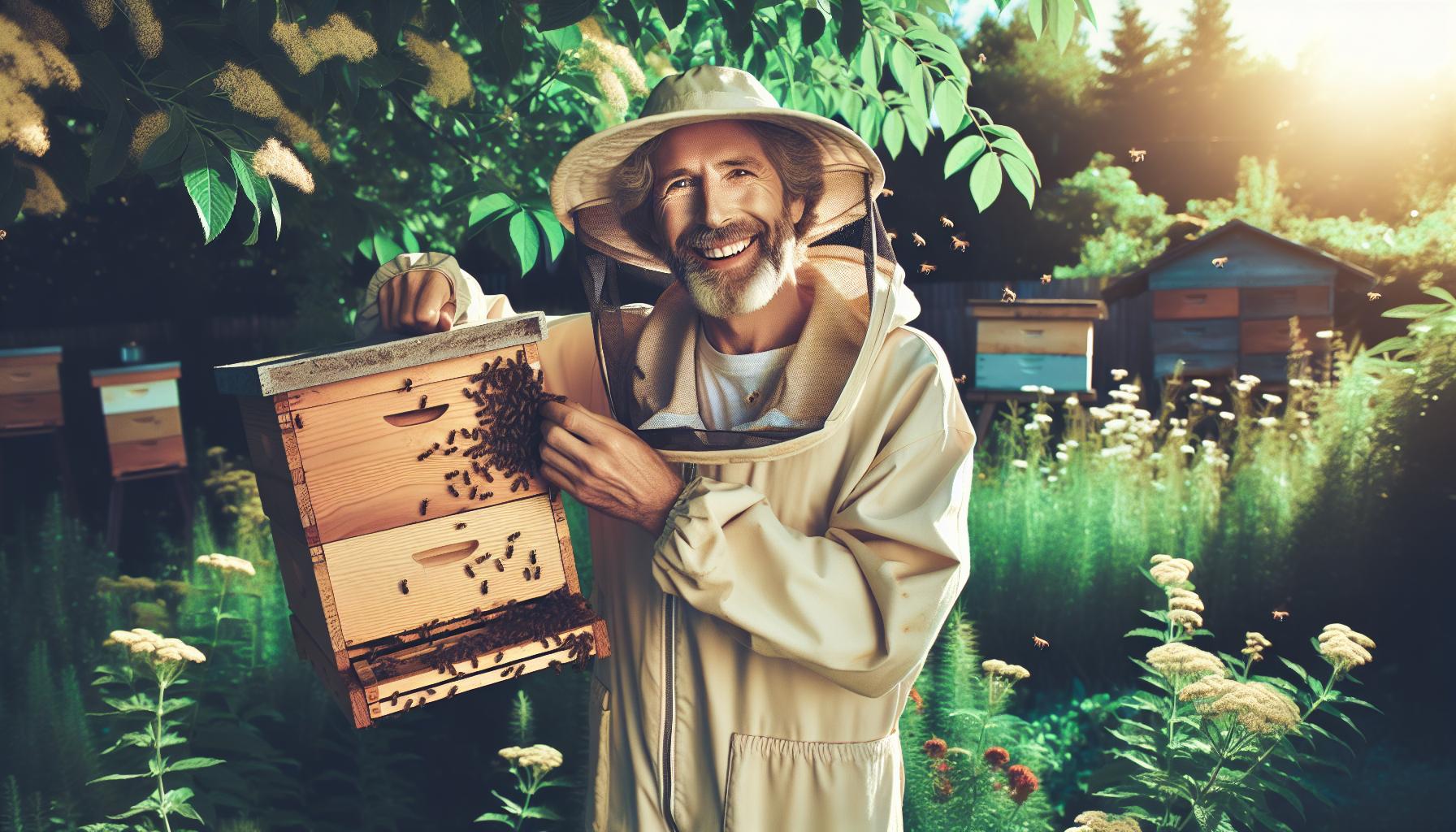In recent years, interest in local beekeeping has surged. As people become more aware of the vital role bees play in our ecosystem, beekeeping is gaining popularity—not just as a hobby but as a way to contribute to environmental sustainability. Local beekeepers are essential figures in their communities, promoting sustainable practices and raising awareness about pollinator conservation.
Finding a beekeeper in your area opens up a world of possibilities. From purchasing fresh honey to learning about the fascinating world of bees, engaging with local beekeepers enriches the community. Whether you’re considering starting your own hive or simply want to support local agriculture, connecting with a beekeeper provides valuable insights and resources.
Understanding Beekeeping
Understanding Beekeeping
Beekeeping involves managing bee colonies primarily for honey production and pollination. Beekeepers ensure the health of their bees by monitoring the environment, providing necessary care, and preventing diseases or pests.
Environmental and Economic Benefits
-
Enhanced Pollination: Bees play a crucial role in agriculture by pollinating crops, leading to higher yields and healthier harvests.
-
Biodiversity Support: Local beekeepers contribute to maintaining healthy ecosystems by fostering strong bee populations.
-
Economic Growth: Beekeeping supports local economies through honey sales, agritourism, and related products like beeswax and propolis.
Beekeeping Practices
Beekeeping methods vary by location and bee species. The most common species include the European honeybee and the Italian honeybee, each with unique characteristics affecting their behavior and productivity. Beekeepers often choose species best suited to their region’s climate and conditions.
Safety and management are essential aspects of beekeeping. Beekeepers use protective gear such as veils, gloves, and smokers to handle bees safely. Regular hive inspections help identify and address potential issues early.
Benefits of Local Beekeepers
Local beekeepers play a vital role in supporting the environment and community. Their efforts enhance not only pollination but also contribute economically.
Environmental Impact
Local beekeepers help improve biodiversity by supporting the health of pollinators. Healthy bee populations lead to better pollination of flowers and crops, which benefits both wild plants and agricultural systems. Increased pollination boosts plant growth, enhancing the overall ecosystem. Moreover, local honey production reduces transportation emissions, as honey sourced nearby travels shorter distances.
Economic Advantages
Local beekeeping strengthens local economies by providing fresh honey and related products like beeswax and propolis. Farmers benefit from increased crop yields due to better pollination from nearby bee colonies. Consumers gain access to quality products, often at a lower price than those from larger suppliers. Workshops and tours led by local beekeepers attract visitors, contributing to community revenue through agritourism activities.
Finding a Bee Keeper in My Area
Finding a local beekeeper involves simple steps that can lead to connecting with those who care for bees and honey production. Local beekeepers provide a valuable resource for communities.
1. Online Resources
-
Visit beekeeping association websites and local agricultural extension offices.
-
Join social media groups focused on beekeeping.
-
Check online directories that list local beekeepers.
2. Farmers' Markets & Local Shops
Many beekeepers sell their honey at farmers' markets or local stores. Visiting these places can help you discover and support nearby beekeeping operations.
3. Community Recommendations
-
Ask neighbors, friends, or gardening clubs about local beekeepers.
-
Participate in environmental groups that promote beekeeping initiatives.
-
Attend local events or workshops to meet beekeeping enthusiasts in person.
Engaging with these resources makes it easier to connect with a beekeeper who shares your interest in pollinator conservation and sustainable practices.
What to Expect from a Bee Keeper
Local beekeepers offer valuable services that support both the environment and the community. These services provide insight into their essential role in managing bee colonies and producing honey.
Services Provided
-
Honey Production: Access to fresh, locally sourced honey.
-
Pollination Support: Helping local farms with crop pollination.
-
Hive Maintenance: Ensuring the health and sustainability of bee colonies.
-
Product Sales: Offering items like beeswax, propolis, and pollen.
Community Engagement
-
Educational Workshops: Learn about beekeeping and pollinator conservation.
-
Farm Tours: Get an inside look at how beekeeping works.
-
Local Events: Farmers' markets and fairs promote beekeeping awareness.
-
Support Programs: Conservation initiatives to protect pollinators.
By supporting local beekeepers, you contribute to a thriving ecosystem and a healthier community.
Support Local Beekeepers Today!
Are you ready to support pollinators and your local community? Find a beekeeper in your area and explore the world of beekeeping today! Whether you’re looking to purchase fresh honey, learn about sustainable practices, or start your own hive, local beekeepers offer invaluable knowledge and resources.
Take action now—connect with a local beekeeper and make a positive impact on your environment!
Frequently Asked Questions
1. Why is local beekeeping important?
Local beekeeping supports biodiversity and enhances pollination for crops and wild plants. Beekeepers play a crucial role in maintaining sustainable ecosystems and promoting agricultural productivity.
2. How can I connect with local beekeepers?
You can find local beekeepers through online beekeeping associations, social media groups, farmers' markets, and community events. Asking friends or environmental groups for recommendations can also help.
3. What are the benefits of buying honey from local beekeepers?
Local honey is fresher and often higher in quality than mass-produced alternatives. It also reduces transportation emissions, supports local agriculture, and may help with seasonal allergies.
4. What role do bees play in agriculture?
Bees provide essential pollination services that improve crop yields and contribute to food production. Without bees, many fruits, vegetables, and nuts would become scarce.
5. How does beekeeping support the local economy?
Beekeeping boosts the economy by providing fresh honey and related products, helping farmers through increased crop yields, and attracting visitors for educational workshops and agritourism activities.



